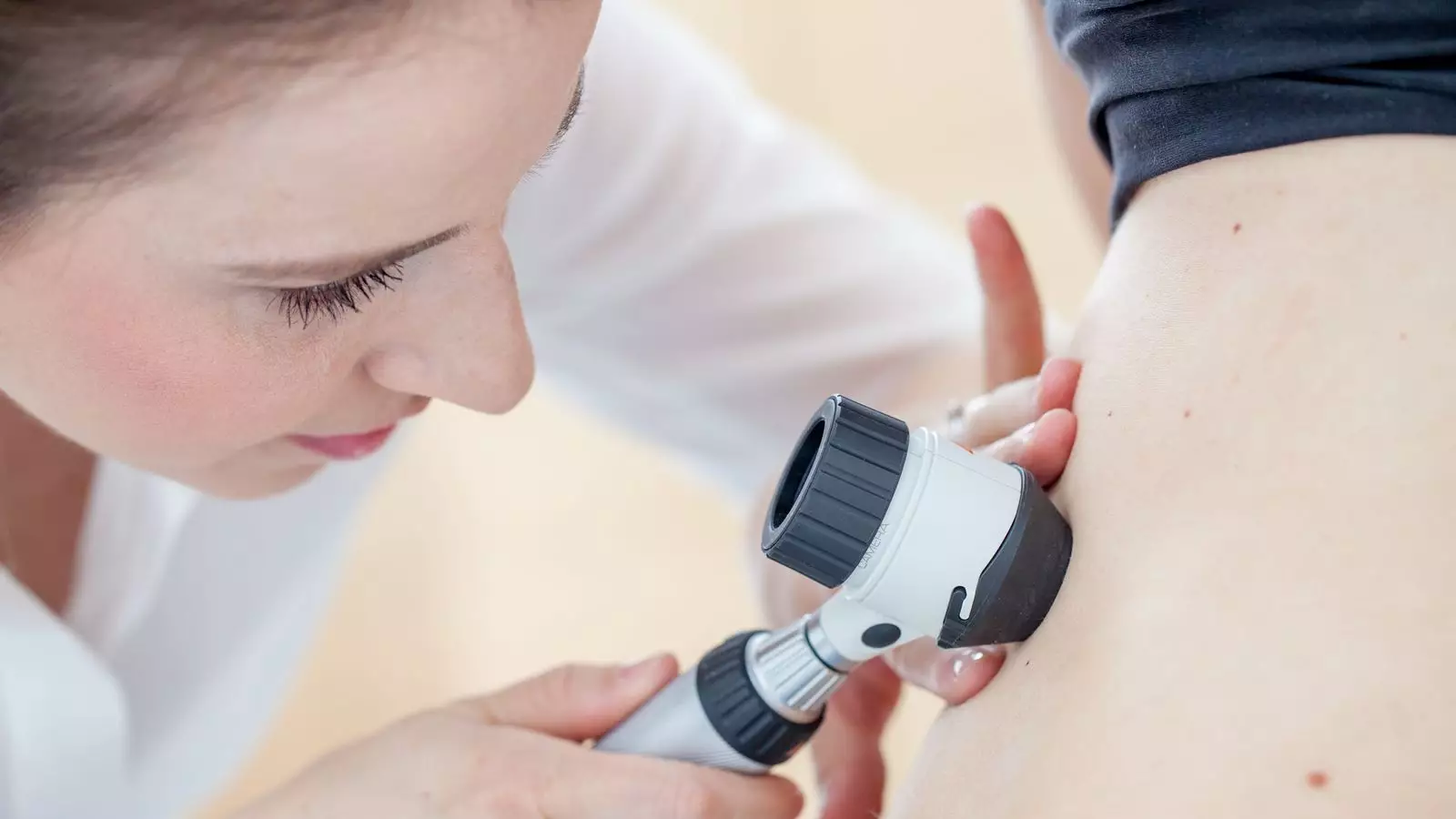The UK is facing a concerning rise in melanoma skin cancer cases, with a projected 20,800 individuals expected to receive a diagnosis this year alone. This marks an all-time high in the number of cases reported. According to Cancer Research UK, the rates of melanoma have surged by nearly 30% over the past decade, escalating from 21 to 28 cases per 100,000 individuals between the years 2007-2009 and 2017-2019. What is particularly worrying is that this upward trend is observable across all age groups, with the most significant spike seen in adults over the age of 80, showing a staggering 57% increase in cases over the past ten years. Additionally, the age group of 25 to 49 has also seen a 7% rise in cases during the same time frame.
A crucial finding from new analysis conducted on melanoma cases indicates that approximately 17,000 of these cases each year could have been preventable. Shockingly, close to 90% of melanoma cases are attributed to overexposure to ultraviolet (UV) radiation. Whether stemming from the sun or artificial sources like tanning beds, UV radiation has the ability to harm DNA within skin cells, consequently leading to the development of skin cancer. As a precautionary measure, Cancer Research UK is urging the public to limit sun exposure, especially between 11am and 3pm, seek shade when possible, don protective clothing, a wide-brimmed hat, UV-protective sunglasses, and utilize sunscreen with a minimum SPF of 30 along with 4 or 5 stars, applied regularly.
One harrowing personal experience with melanoma is that of Caroline Jones, a postmistress located in Shrewsbury. Ms. Jones first noticed a minuscule blemish above her knee in July 2018, prompting her to visit her general practitioner. After observation, it was identified as a mole-like lesion, leading to a biopsy uncovering its cancerous nature. Ms. Jones expressed, “I sat in the waiting room looking at the pictures on the wall and I could see that my skin looked just like one of the photographs – flat and shiny and black in the middle.” Having lost her mother to breast cancer at the young age of 49, Ms. Jones felt the weight of her diagnosis at 52. Fortunately, she was able to have the mole removed without further treatment, underscoring the importance of early detection and response.
Michelle Mitchell, the Chief Executive of Cancer Research UK, emphasizes the critical role of prevention in combatting melanoma. She stresses the significance of mitigating risk factors and promptly consulting a healthcare professional when any unusual changes to the skin are noted. As she puts it, “Make sure to take care in the sun and contact your GP if you notice any unusual changes to your skin.” Early detection plays a pivotal role in improving survival rates, as underscored by the charity’s data showing a marked increase in the survival of melanoma patients in England.
Amidst the concerning rise in melanoma cases, there is a glimmer of hope on the horizon. Recent breakthroughs in cancer treatment have paved the way for more targeted and personalized approaches to combating melanoma. Notably, the world’s first personalized mRNA cancer jab for melanoma is currently undergoing trials in British patients. This innovative jab, heralded as a potential gamechanger, is individually tailored for each patient within a short span of time. Results from a stage-2 trial have shown promising outcomes, indicating a drastic reduction in the risk of cancer recurrence in melanoma patients. As a phase-3 trial progresses, led by the University College London Hospitals NHS Foundation Trust, there is optimism for the future of melanoma treatment.
The escalating number of melanoma cases in the UK serves as a stark reminder of the importance of sun safety practices, early detection, and advancements in cancer research. While the challenges posed by this deadly form of skin cancer are formidable, the strides made in treatment and prevention offer a ray of hope for individuals grappling with this disease. Through continued vigilance, education, and access to innovative therapies, we can collectively work towards reducing the burden of melanoma and improving outcomes for those affected by this relentless affliction.


Leave a Reply